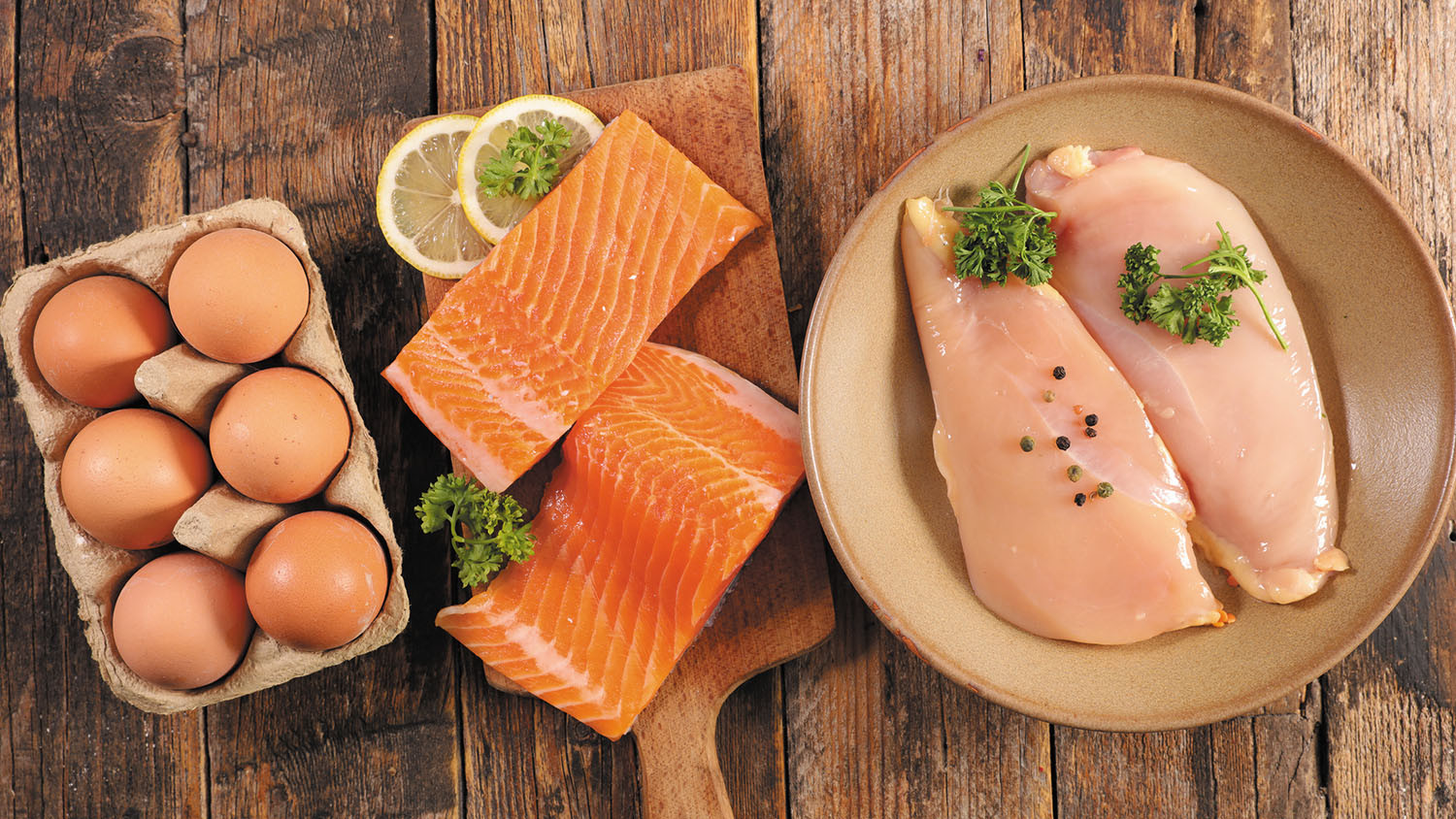Protein is a cornerstone of healthy eating and weight loss and is readily available in a lot of the foods you eat every day, including poultry, meat, dairy, fish, eggs, legumes, nuts, seeds, soy and even whole grains. Research shows higher-protein meals or snacks can also help reduce hunger and extend the feeling of satiety. The recommended daily allowance (RDA) for men ages 19–50 is 56 grams per day, and it’s 46 grams per day for women. To get a more specific recommendation for what you need, you can calculate it based on your body weight. Generally speaking, you need .8 grams of protein per kilogram of body weight. This translates to about 56 grams of protein for someone who weighs 70 kg. You can track your protein intaken and also pay attention to the following signs you might not be getting enough in your diet.

You’re losing muscle mass
Protein is made up of amino acids, which are essential for building muscle. This means that if you’re not getting adequate protein, your muscle mass could suffer. You might notice this as decreased strength, change in weight or even how your clothes are fitting. In fact, muscle loss is one of the first signs of inadequate protein intake.
Skin, hair and nail problems
Protein deficiency may leave its mark on the skin, hair and nails, all of which are largely made of protein. There are chances you may see redness on the skin, brittle nails, thin hair, faded hair colour, all of which are considered symptoms of protein deficiency.
You’ve become prone to stress fractures
Your bones too are also at risk. Protein helps maintain the strength and density of bones. In addition to calcium, research shows a protein-rich diet is beneficial for overall adult bone health. Without sufficient protein to provide energy to our organs and brain, the body will look for other sources, and one place it borrows from is skeletal muscle tissue. If you are consistently running low on protein, over time, your bones will be susceptible to injuries such as stress fractures and breaks.
Bigger appetite and increased calorie intake
Sufficient protein intake may keep you satiated for a longer period, thereby preventing cravings and hunger pangs. However, lesser protein intake does exactly the opposite; it leaves you hungrier, which results in increased calorie-intake.
Risk of infections
Protein deficiency takes a toll on your immunity system. Impaired immune system may disable your body to fight infections.
Fatty liver
Another common symptom of protein deficiency is fatty liver, or fat accumulation in liver cells.
May inhibit proper body growth in children
Protein not only helps in building bone mass and muscles, but it is essential for overall body growth as well. It is important for children to load up on enough healthy proteins to ensure proper body growth. Protein can be found in various foods that may include seafood, soy, eggs, beans, milk, cheese, yogurt, almonds, oats, chicken, cottage cheese, broccoli, tuna, quinoa, lentils, pumpkin seeds, flaxseeds, sunflower seeds, fish (all types), shrimp, peanuts and Brussel sprouts among others.

So go on and ensure loading up on enough protein for the day to avoid any deficiency that leads to health complications. Also, consult a doctor in case you see these symptoms to avoid problems in the longer run.
